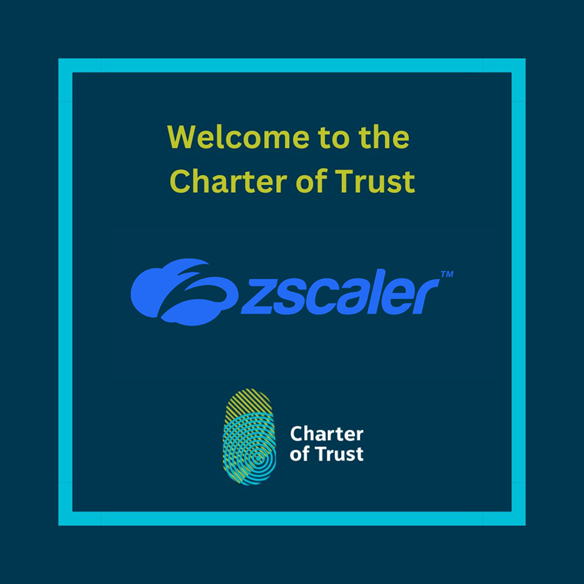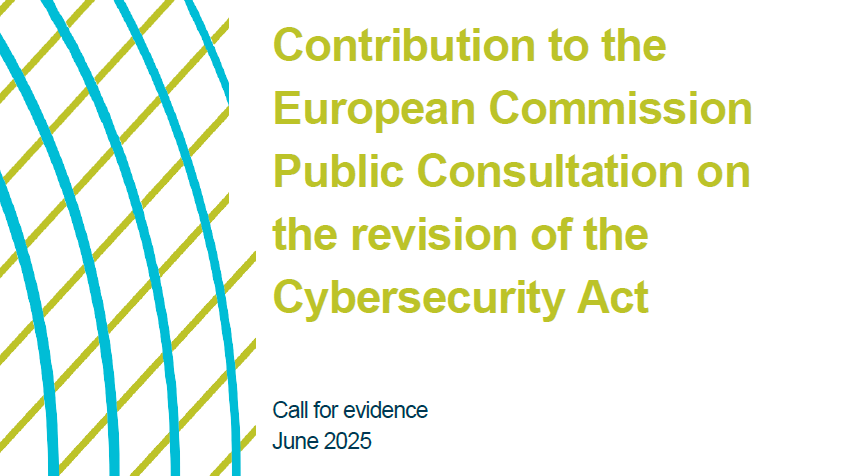As the United States begins a new chapter politically, this is an important moment for US leaders to evaluate and potentially reposition the nation’s cybersecurity policies. Cybersecurity should be among the top issues addressed first and consistently over the next four years.
This policy focus is essential as we continue to uncover and comprehend the impacts of the SolarWinds cyberattack. From bolstering the role of the US Cybersecurity and Infrastructure Security Agency (CISA) to taking critical steps to protect US infrastructure and supply chains to building a pipeline of advanced cybersecurity professionals, these critical policy areas must be central to the nation’s agenda going forward.
The members of the Charter of Trust – an international alliance of corporations and organizations committed to enabling trust in digital technologies – urge US government officials to align their policy priorities with several core principles that emphasize the need to prioritize cybersecurity laws, protections measures and education.
Ownership
Principle One of the Charter of Trust establishes that responsibility for cybersecurity should be appropriately designated throughout an organization with proper accountability in management. Aligned with that principle, we are encouraged by congressional action, via the recently passed National Defense Authorization Act (NDAA), which creates a “National Cyber Director” role within the White House.[1] We expect this new leadership role will pave the way for improved and streamlined threat intelligence with sharing of information across government agencies and with industry. This same legislation expands the role and responsibilities of CISA, a crucial step in protecting critical infrastructure in the United States. We anticipate that the new US administration will continue to encourage expansion of CISA resources, responsibilities and partnership with the private sector moving forward. These are all positive developments that will strengthen US national security as well as the security of the economy and critical infrastructure. We encourage government leaders at both ends of Pennsylvania Avenue to make cybersecurity an ongoing and sustained policy priority.
Supply Chain Security
Principle Two states that companies and – if necessary – governments must establish risk-based rules beyond the proposed Baseline Cybersecurity Supply Chain Requirements[2] to ensure adequate protection across the digital supply chain. For critical infrastructures such as the US power grid and other critical IoT solutions the Charter of Trust advocates for independent certification in its Principle Seven. As was observed in the recent high-profile SolarWinds attacks, third-party and fourth-party cyber risk management has never been more important. It is imperative for organizations to have visibility into the cybersecurity measures of their key vendors. Aligned to what we’ve developed in our white paper on supply chain security, the Charter of Trust is confident that CISA will continue and expand on its work as the nation’s cyber risk management advisor providing organizations with guidance and frameworks for assessing third-party risk. Tactically, this includes promoting standards across secure software development and engaging in a coordinated, improved approach to vulnerability management.
Education
Principle Six of the Charter calls on academia to expand dedicated cybersecurity courses in school curricula, helping to build a diverse talent base. There is a serious deficit in cyber talent pipeline, in large part due to the lack of educational opportunities. Additionally, there are known challenges in the cybersecurity field to properly identify, recruit and retain talent, especially women and minority groups. Meanwhile, estimates indicate there will be more than three million cybersecurity jobs unfilled just this year[3]. Recognizing the magnitude of the challenge, we encourage the administration to proactively address this shortfall through both creative and traditional means, including adjustments to immigration policy related to high-skilled cyber talent and providing dedicated funding to STEM education, especially in high schools and community colleges.
Security by default
Principle Three of the Charter calls for the adoption of the highest appropriate level of security and data protection, highlighting the need to ensure that security and data protection are preconfigured into the design of products, functionalities, processes, technologies, operations, architectures, and business models. As industrial production – especially in the technology and mobility sectors – continues to recover in the wake of the pandemic, security by default is now more essential than ever. We encourage and anticipate further discussion on device-based security standards – including the IoT Security Act of 2020 – when contemplating next steps in crafting more advanced, flexible cybersecurity principles.
International Norms and Leadership
Perhaps the most impactful cybersecurity actions government officials can undertake is to regain and reassert US leadership in cyberspace. We recognize that success will require global support and joint initiatives between industry, governments, academia and research organizations, as laid out in both Principle 10 of our Charter of Trust and its Joint Initiatives and Associate Partner Forum, which support a collaborative approach between these three important stakeholder groups. To also strengthen the global digital supply chain for the US industry harmonization of standards and requirements with other regions shall become a priority of the new administration.
Cybersecurity is at the core of national defense, future stability and economic growth. Its importance should not be underestimated or placed down the list of highest governmental priorities. The members of the Charter of Trust stand by to help inform and support these policy actions.
[1] Congressional backers cite cybersecurity provisions as they push Trump to sign defense bill – CNNPolitics
[2] Charter of Trust Baseline Cybersecurity Supply Chain Requirements
[3] The Mad Dash to Find a Cybersecurity Force – The New York Times (nytimes.com)


You may also like

Charter of Trust Welcomes Zscaler
Zscaler is a leading cloud enterprise security provider helping global businesses accelerate their digital transformation by becoming more agile, efficient, resilient, and secure.
With Zscaler as a partner in the Charter of Trust, we aim to strengthen global cyber resilience through trust – by fostering actionable collaboration between industry leaders, governments, and public-private platforms. Zscaler brings robust expertise and innovation to the table, making it the ideal partner to drive this mission forward.
“Zscaler is excited to drive meaningful change alongside our new partners, laying a foundation of trust essential for successful digital transformation,” said Sam Curry, Zscaler CISO. “In today’s world, the need for reducing inherent trust and default access has never been greater. To truly stay ahead of ever-evolving threats, we must unite as a coalition of practitioners. Cyber attackers aren’t taking breaks, and with advancements like artificial intelligence, quantum cryptography, and emerging technologies on the horizon, collaboration is the key to securing the future.”
“We are proud to welcome Zscaler to the Charter of Trust. Their focus on cybersecurity innovation and commitment to openness reflect our shared ambition to create a safer, more resilient digital future. Together, we’ll strengthen trust, transparency, and security across the global digital landscape.” highlighted Dr. Summit Chada, Charter of Trust Co-Chair and COO Group Security & Business Lines CISO at Atos.
“With Zscaler as a Partner of the Charter of Trust, we believe that we can strengthen the global commitment to secure digital transformation by combining technological innovation with the Charter of Trust’s collaborative approach to cybersecurity leadership.” Ralf Schneider, Charter of Trust Co-Chair and Senior Fellow and Head of Cybersecurity and NextGenIT Think Tank at Allianz SE, welcomes Zscaler to the Charter of Trust.
We are excited to join forces and work together to advance digital trust and security across industries.

Contribution to the EU Commission Public Consultation on the revision of the Cybersecurity Act
We support Policy Option 2, which focuses on targeted regulatory measures that address key challenges without creating unnecessary complexity. In this context, we emphasize the need to enhance the role and resources of ENISA, to ensure effective implementation of both current legislation and the European Cybersecurity Certification Framework (ECCF).
Our recommendations aim to improve transparency, collaboration, and efficiency across the EU’s cybersecurity landscape. These include:
- Introducing clear timelines for the development of certification schemes.
- Enhancing stakeholder engagement throughout the process.
- Establishing more structured communication channels between ENISA, the Stakeholder Cybersecurity Certification Group (SCCG), and sectoral ISACs (Information Sharing and Analysis Centers).
We call for a stronger ECCF, one that is transparent, inclusive, and aligned with international standards to foster global interoperability and ease compliance for organizations across borders. Equally critical is the harmonization of certification practices across EU member states and the mutual recognition of certifications to minimize regulatory fragmentation.
The Charter of Trust advocates for technically robust, standards-based certification schemes, with well-defined roles and responsibilities. We also stress the need for clarity on the interplay between voluntary and mandatory certifications, particularly in relation to the upcoming Cyber Resilience Act (CRA).
To streamline compliance and reduce administrative burden, we propose a unified, risk-based incident reporting regime that consolidates requirements under regulations such as NIS2, CRA, GDPR, and DORA. This would not only simplify reporting for organizations but also enhance the EU’s overall cyber resilience. In addition, we recommend incorporating liability protections and grace periods for incident disclosure.
Finally, we urge the Commission to strengthen supply chain security by adopting a risk-based classification approach and establishing baseline cybersecurity requirements for ICT suppliers.
The Charter of Trust remains fully committed to supporting the European Commission in shaping a secure, resilient, and trusted digital future for Europe. We look forward to continued collaboration in building a cybersecurity framework that meets the needs of all stakeholders, today and in the years to come.




